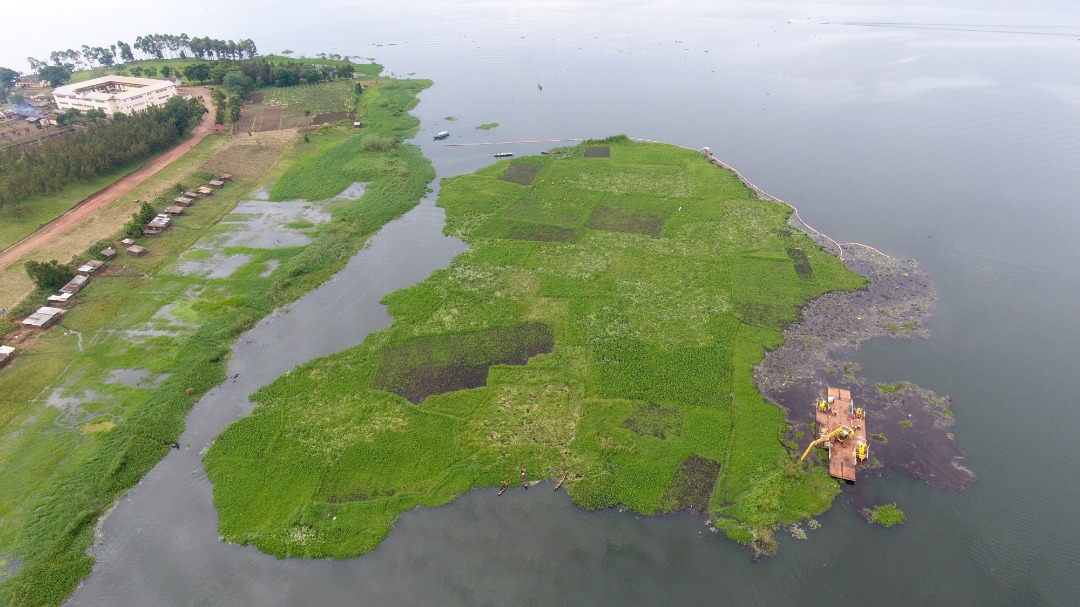News
New 100 acre floating island discovered on L. Victoria

Part of the new island floating on lake Victoria
Ministry of Agriculture Permanent Secretary Pius Wakabi said through his Twitter account on Tuesday that although the multi-sectoral team was trying to remove part of an initial floating island in Jinja, they had identified yet another mass measuring about 100 acres.

P.S Wakabi while on a surveillance trip broke the news of the new floating island
Although P.S Wakabi has reassured the public not to panic over the matter, the frequency with which the floating islands is emerging, is a cause of concern.
Efforts by The Sunrise to get details such as location of the island were futile as the P.S was not picking his calls.
A similar menace affected power generation at Nalubaale two weeks ago when the vegetation blocked water intake into the dam.
Eskom Managing Director Thozama Gangi yesterday tweeted that the joint government team had succeeded in removing the vegetation that hit Nalubaale dam about two weeks ago.
In recent days, a joint team of government agencies including Ministry of Agriculture, Uganda People’s Defence Forces (UPDF), Ministry of Works and Ministry of Water had Environment embarked on the difficult task of removing the mammoth floating island near Kirinya prison in Jinja district.
The discovery of yet more floating islands raises the threat level especially concerning the safety of hydro power dams at Nalubaale, Kiira and Bujagali dams in Jinja.

The government’s joint effort to break up the Kirinnya floating island that has farms on it.
The increased occurrence of floating islands is attributed to increased rainfall in the Lake Victoria catchment in recent years.
Although the government blames illegal farming on the wetland shores as the cause of the menace, locals in places where the land has shifted away, dispute this and instead blame it on mere increases in water levels.
President Yoweri Museveni informed the country last week that recent increases in rainfall in the Lake Victoria catchment region, has pushed water levels in the lake to near record levels last seen in 1964.
Heavy rains that was experienced in the Lake Victoria region between 1962 and 1964 pushed water levels by up to 3 metres and destroyed major infrastructures along the shores of the lake including destroying Butiaba port on Lake Albert.
The threats arising from floating islands and related problems such as submerging of landing sites, and settlements, is likely to get worse according to the National Environment Management Authority (NEMA) boss Dr. Tom Okurut
Dr. Okurut said that heavy rainfall is expected to continue until about 2021.
Comments


















